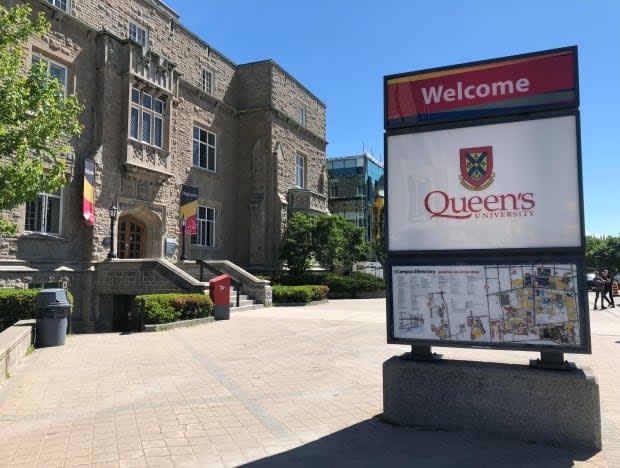Queen's University defends faculty, staff against allegations they're falsely claiming to be Indigenous

Queen's University in Kingston, Ont., is defending its faculty, staff and community partners after an anonymous report surfaced online this week alleging six of its instructors, professors and associates had falsely claimed Indigenous identity.
"We reject the anonymous document in question, which is misleading and contains factual inaccuracies including some genealogical information of individuals named in the document," university spokesperson Mark Erdman wrote in a statement.
CBC has not verified the veracity of allegations made in the 53-page report, which was shared on social media and last edited on June 10. It contains an appendix of supporting documents, including what appears to be historic marriage certificates and census data with date stamps and signatures going back hundreds of years.
When reached by CBC News, one of the academics named in the report said she had always been upfront about her ancestry, which comprises mostly "settlers." She said she has the documentation to prove her Indigenous ancestry, and the dossier included incorrect information.
CBC requested interviews with individuals identified in the document, but on Friday, Queen's said none were interested in responding officially.
The accusations made in the report fall under two general categories: those who claimed to have Indigenous roots when there were allegedly little or none; and those who have ties to the Ardoch Algonquin First Nation (AAFN).
At least three of the individuals named in the report identify as members of the Ardoch.
AAFN is a non-status community based north of Kingston, whose members made headlines more than a decade ago when they protested against a uranium mining project near Sharbot Lake in eastern Ontario.
The anonymous report calls into question whether Ardoch is a legitimate Algonquin First Nation.
It is not considered a First Nation under federal law.
"Overall, including the AAFN as a community partner, as Queen's University has chosen to do according to its Indigenous Council, is wrongheaded," the report claimed.
It ended with recommendations to the university to remove some of the faculty members, sever its relationship with the Ardoch and conduct an inquiry.
False claims over Indigenous identity growing, says prof
Veldon Coburn, an assistant professor at the Institute of Indigenous Research and Studies at the University of Ottawa, said he supports the report.
He said over the last few decades there has been a growing number of people "coming out to claim Indigenous identity, specifically Algonquian identity," in various industries, especially academia.
Coburn said these people "hold themselves out to be a sort of spokesperson or figurehead from the Algonquian Nation when they are not," or their Indigenous ancestry can only be linked to a single person from centuries ago.
Queen's University said it "respects and trusts the Indigenous protocols used to identify those it considers Indigenous."
"The individuals identified in the document are welcome, active, and respected members of the Indigenous and academic communities within the university," university spokesperson Erdman added.
Erdman said the school is now investigating the origins of the report, and will "take what action it may deem appropriate to support those whose professional reputations are being maligned."

